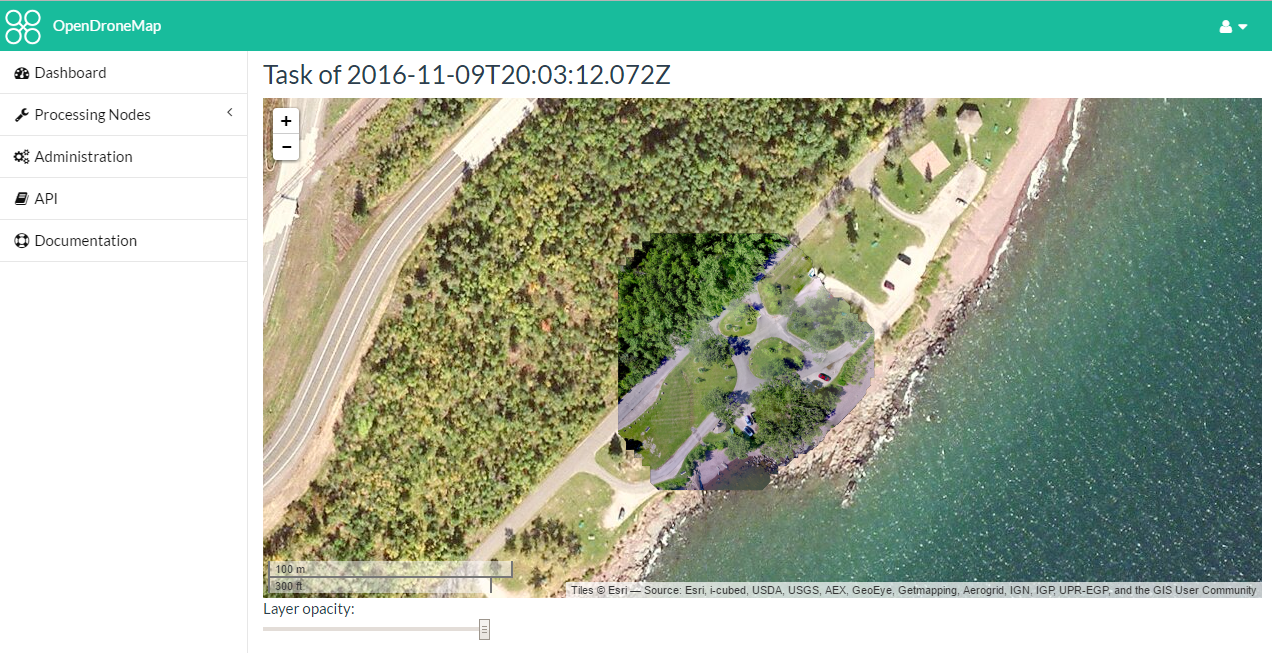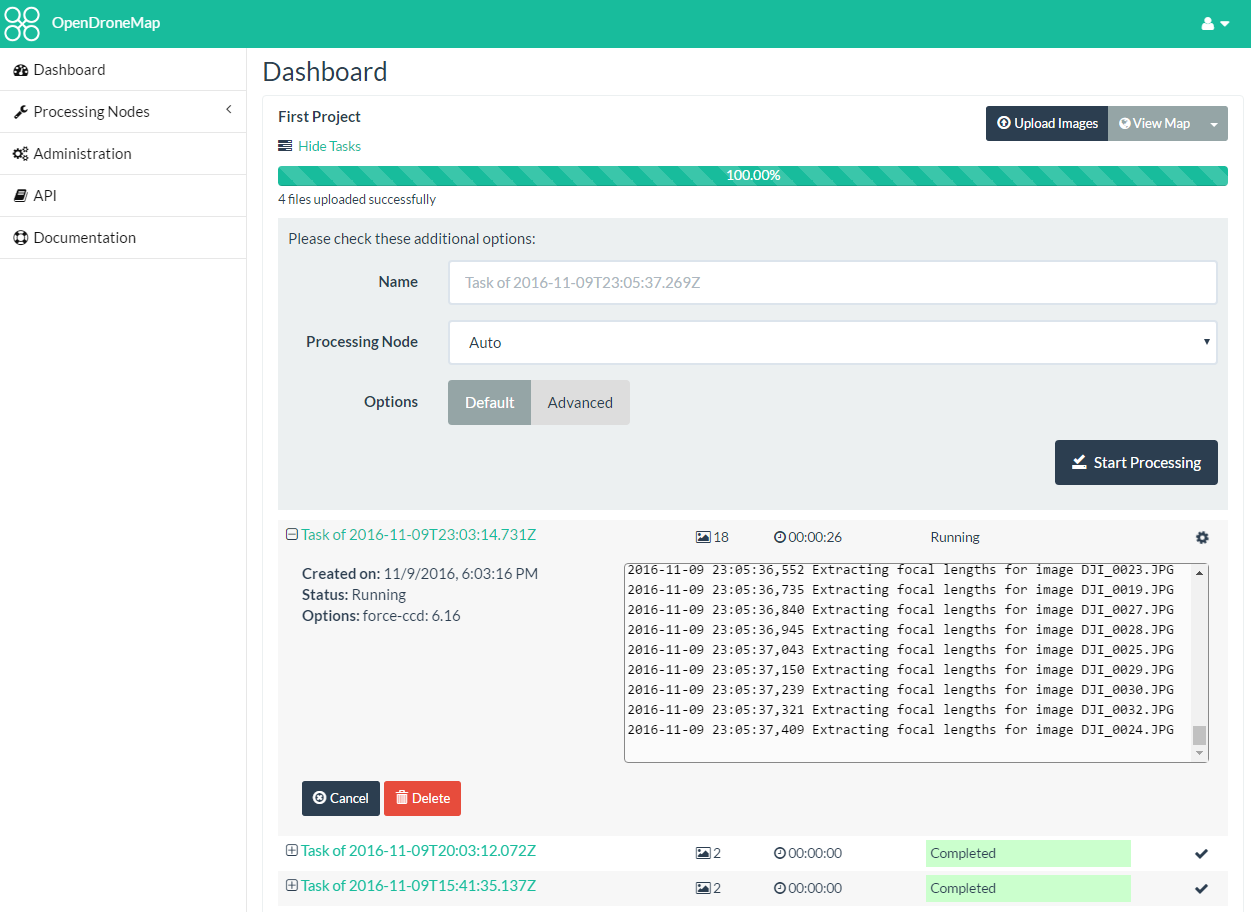4.3 KiB
WebODM
A free, user-friendly, extendable application and API for drone image processing.
If you know Python, web technologies (JS, HTML, CSS, etc.) or both, make a fork, contribute something that interests you, and make a pull request! All ideas are considered and people of all skill levels are welcome.
Getting Started
The quickest way to get started is by using Docker.
- From the Docker Quickstart Terminal (Windows / OSX) or from the command line (Linux) type:
git clone https://github.com/OpenDroneMap/WebODM
cd WebODM
pip install docker-compose
docker-compose up
- If you're on Windows/OSX, find the IP of your Docker machine by running this command from your Docker Quickstart Terminal:
docker-machine ip
Linux users can connect to 127.0.0.1.
- Open a Web Browser to
http://<yourDockerMachineIp>:8000 - Log in with the default credentials: "admin:admin"
Run it natively
If you want to run WebODM natively, you will need to install:
- PostgreSQL (>= 9.5)
- PostGIS 2.3
- Python 3.5
On Linux, make sure you have:
apt-get install binutils libproj-dev gdal-bin
On Windows use the OSGeo4W installer to install GDAL.
Then these steps should be sufficient to get you up and running:
git clone https://github.com/OpenDroneMap/WebODM
Create a WebODM\webodm\local_settings.py file containing:
DATABASES = {
'default': {
'ENGINE': 'django.contrib.gis.db.backends.postgis',
'NAME': 'webodm_dev',
'USER': 'postgres',
'PASSWORD': 'postgres',
'HOST': 'localhost',
'PORT': '5432',
}
}
Then:
pip install -r requirements.txt
npm install -g webpack
npm install
webpack
chmod +x start.sh && ./start.sh
If you are getting a rt_raster_gdal_warp: Could not create GDAL transformation object for output dataset creation, make sure that your PostGIS installation has PROJ support:
SELECT PostGIS_Full_Version();
You may also need to set the environment variable PROJSO to the .so or .dll projection library your PostGIS is using. This just needs to have the name of the file. So for example on Windows, you would in Control Panel -> System -> Environment Variables add a system variable called PROJSO and set it to libproj.dll (if you are using proj 4.6.1). You'll have to restart your PostgreSQL service/daemon after this change. http://postgis.net/docs/manual-2.0/RT_ST_Transform.html
Roadmap
- User Registration / Authentication
- UI mockup
- Task Processing
- Model display (using Cesium/Leaflet) for both 2D and 3D outputs.
- Cluster management and setup.
- Mission Planner
- API
- Documentation
- Android Mobile App
- iOS Mobile App
- Processing Nodes Volunteer Network
- Unit Testing
Terminology
Project: A collection of tasks (successfully processed, failed, waiting to be executed, etc.)Task: A collection of input aerial images and an optional set of output results derived from the images, including an orthophoto, a georeferenced model and a textured model. ATask's output is processed by OpenDroneMap.ProcessingNode: An instance usually running on a separate VM, or on a separate machine which accepts aerial images, runs OpenDroneMap and returns the processed results (orthophoto, georeferenced model, etc.). Each node communicates with WebODM via a lightweight API such as node-OpenDroneMap. WebODM manages the distribution ofTaskto differentProcessingNodeinstances.ImageUpload: aerial images.Mission: A flight path and other information (overlap %, angle, ...) associated with a particularTask.
Work in progress
We will add more information to this document soon.



